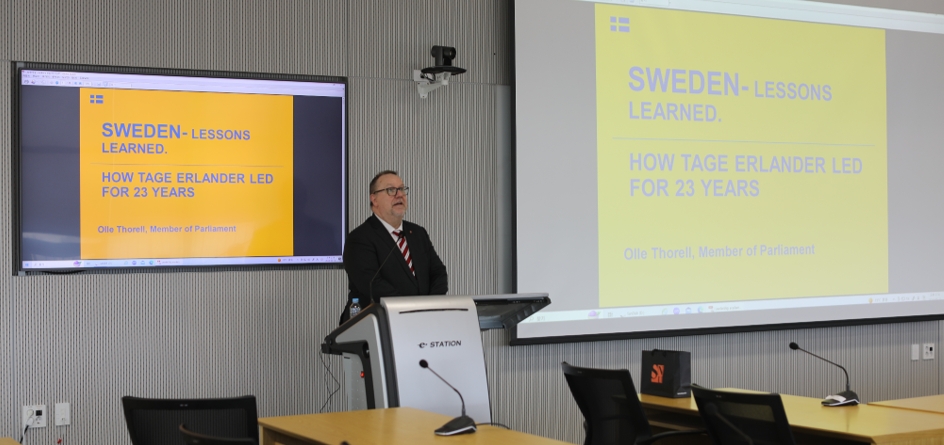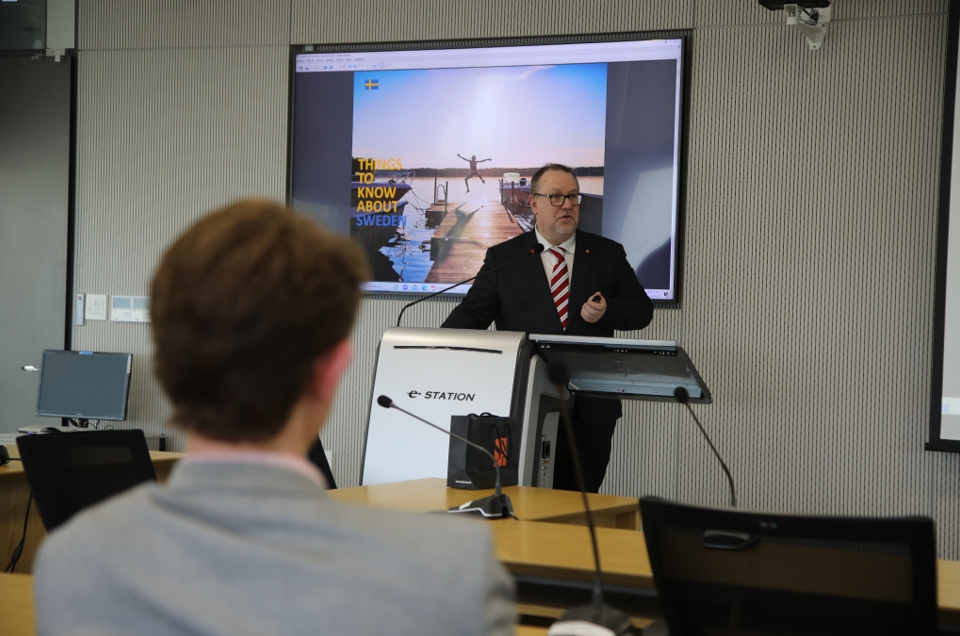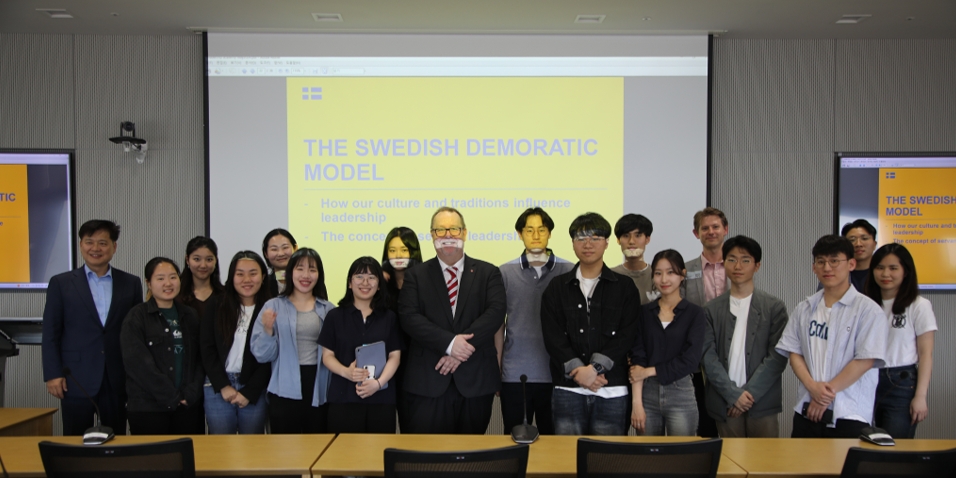On May 10, Swedish parliamentarian Olle Thorell gave a lecture titled “Sweden: Lessons Learned” at Seoul National University’s Woosuk Economic Hall. The lecture was arranged jointly by the Department of Political Science and International Relations and the Lee Tae-seok Leadership Academy to provide students an opportunity to learn about real-world politics. The Lee Tae-seok Leadership Academy cultivates future leaders by teaching them compassion and empathy, drawing inspiration from the life of Father Lee Tae-seok. Thorell is currently serving his fifth term as a member of parliament, and during the lecture, he introduced the framework of Sweden's democracy and discussed the spirit of sacrifice and service in the nation’s political field.

Olle Thorell’s lecture
Thorell stated that his interest and engagement in school policies, developed during his time as a high school teacher, eventually led to him to join the parliament. Ever since his first election in 2006 as a parliament member, he has been reelected every 4 years to represent the Social Democratic Party.
To examine Swedish politics, it is important to understand Sweden as a nation. Thorell explained that Sweden has a low population density and 70% of its land is covered by forests. Though the nation has been at peace for over 200 years, it still ranks high in weapon production per capita.

Thorell introducing characteristics of Sweden
In explaining some reasons for Sweden’s successful democracy, Thorell pointed to the strength of the nation’s social welfare system. Sweden is a world leader in social welfare with the government subsidizing education and providing public health care for its citizens. The accessibility and affordability of kindergarten and daycare help young Swedish parents balance their careers with childcare. Thorell further highlighted that this system is possible due to the citizens’ willingness to pay high taxes with the expectation of social security in return.
Specifically on Sweden’s democracy, Thorell explained that Sweden has followed its democratic model for 100 years. Voters consider parties and programs more than individual candidates during election season. Moreover, a key factor to Sweden’s dedicated parliament is that members of the parliament are not motivated by their salary but by their passion for politics. In fact, a large part of the work that politicians do is voluntary, meaning it is unpaid. Politicians work to change society and there is complete transparency of all public records.
Thorell also stressed, however, that there is a rising problem of complacency among citizens. They are becoming less engaged in politics and societal movements as the current trend is for individualism. Thorell emphasized that keeping an interest in political issues and fighting for the rights of all people is essential to the preservation of democracy. Overall, the critical need for active civic engagement and collective action to safeguard democracy against the growing tide of individualism and political apathy was clearly highlighted.

Thorell and the participants of his lecture
Thorell’s lecture on Sweden’s democratic framework may be a good comparative case that will help advance studies on government as a whole.
Written by Jimin Suh, SNU English Editor, jiminasuh@snu.ac.kr

